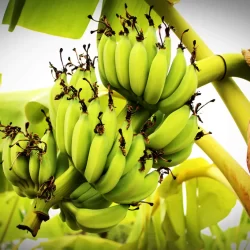Dodoma, Tanzania – In a dramatic escalation of a burgeoning trade dispute, Tanzania has retaliated against South Africa and Malawi by imposing an immediate and comprehensive ban on all agricultural imports from the two Southern African nations. The bold move, announced late Wednesday by a resolute Minister for Agriculture Hussein Bashe, comes after Pretoria and Lilongwe failed to heed calls to lift their own restrictions on Tanzanian farm produce.
A visibly firm Mr. Bashe, addressing the nation in a televised statement from the Tanzanian capital, declared that enough was enough. “We cannot continue to be on the receiving end of such blatant unfairness,” he asserted, his voice carrying a clear message of defiance. “While we remain open to constructive dialogue, we must, without delay, safeguard our national economic interests.”
The sweeping ban means South African consumers will no longer find their beloved crisp apples gracing Tanzanian shelves. More significantly, it slams the door shut on all agricultural commodities originating from both South Africa and Malawi, effectively severing a crucial trade artery.
The drastic action follows tit-for-tat measures initiated last week when South Africa and Malawi slapped restrictions on a range of Tanzanian agricultural exports. Rice, flour, ginger, bananas, and maize – staples for many Tanzanian traders operating in the Southern African region – found themselves caught in a bureaucratic web, severely disrupting established trade routes and leaving exporters reeling.
“In the case of Malawi, their refusal to withdraw the restrictive notice leaves us with no alternative,” Minister Bashe stated unequivocally. “Therefore, we are officially banning all agricultural products originating from Malawi from entering our borders.”
The Tanzanian government is not only targeting direct imports. Mr. Bashe made it clear that agricultural cargo from both Malawi and South Africa destined for other locations but transiting through Tanzanian territory, particularly goods from Malawi, would also be turned back.
Adding a further sting to the measures, Tanzania has also put a halt to the export of maize that had been purchased within its borders for humanitarian efforts in Malawi. “Malawi had a scheduled date of May 1, 2025, to begin collecting fertiliser from Tanzania for their upcoming planting season. That will not proceed. No fertiliser will be permitted to cross into Malawi,” the Minister declared, highlighting the far-reaching consequences of the escalating trade war.
Despite the potentially disruptive nature of the ban, Mr. Bashe sought to reassure Tanzanians about the nation’s food security. “Let me be absolutely clear,” he stated with conviction, “no Tanzanian will suffer a shortage of grapes or South African apples because of this decision. This is fundamentally about protecting our businesses and demanding mutual respect in trade – a principle that is non-negotiable.”
The Tanzanian government’s decisive move signals a hardening stance against what it perceives as protectionist measures from its Southern African neighbours. The coming days and weeks will be crucial in determining whether this bold counter-offensive will prompt South Africa and Malawi to reconsider their positions or if the region is heading towards a protracted and damaging trade standoff. For now, the message from Dodoma is clear: Tanzania is no longer willing to play by rules it deems fundamentally unfair.




